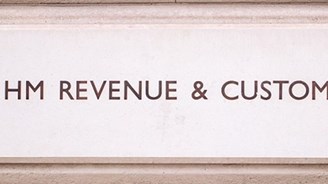FRED 71, defined benefit pension schemes and Housing Associations

The Social Housing Pension Scheme (SHPS) and the Scottish Housing Associations’ Pension Scheme (SHAPS) (collectively “SHPS/SHAPS”) are defined benefit (“DB”) multiemployer pension schemes, with sponsoring employers which includes social landlords. The schemes are administered by TPT Retirement Solutions (“TPT”). Historically TPT have been unable to provide sufficient information relating to each landlord’s share of SHPS/SHAPS to enable DB accounting, and so in accordance with FRS 102.28.11A the majority of social landlords have accounted for the schemes as defined contribution (“DC”) schemes and provided for a liability for the present value of the deficit funding agreement.
Changes made to TPT’s systems and processes will mean that there may be sufficient information available in respect of the SHPS/SHAPS which will enable the schemes to be accounted for using DB accounting. Where sufficient information is available, the scheme must be accounted for by social landlords as DB in accordance with paragraphs 28.14 to 28.28 of FRS 102.
FRS 102 does not provide guidance as to how to transition from DC accounting to DB accounting. In January 2019, the Financial Reporting Council (“FRC”) issued an exposure draft, FRED 71 (Draft amendments to FRS 102, The Financial Reporting Standard applicable in the UK and Republic of Ireland, Multiemployer defined benefit plans) which provides proposed changes to FRS 102 to address this issue. FRED 71 proposes that paragraphs 28.11B and 28.11C are added. In March 2019, the Housing Federation in partnership with other sector leaders, issued guidance for housing associations following the principles of FRED 71 which social landlords are expected to follow as a matter of best practice.
TPT expects to be able to provide sufficient information which enables DB accounting for periods ending 31 March 2019 as the earliest period. Assuming that this is the case the most significant impacts will be:
- The difference between the deficit funding agreement social landlords currently recognise for SHPS/SHAPS, and the net DB deficit, should be recognised in other comprehensive income (OCI) and shown separately if material;
- The impact of applying DB accounting on the performance and position in the current year and prior year may need to be reflected in the Board report;
- The change in accounting policy is likely to be a significant judgement and disclosure in the accounting policies will be required; and
- The relevant date to apply the adjustment is 1 April 2018.
The sector guidance includes examples of the accounting entries to be made.
In addition to the above, the sector guidance also details how social landlords should deal with the Guaranteed Minimum Pensions (GMP) equalisation. This will result in an increase in the GMP benefits for some SHPS/SHAPS members. The impact of GMP equalisation would not be changes to actuarial assumptions, and instead are past service costs and, where material, should be accounted for though the income statement / profit and loss account. Auditors must ensure that this is discussed with the clients as soon as possible. It is anticipated that TPT will be providing further details regarding the impact of GMP equalisation on SHPS/SHAPS in due course.
Our RSHP Specialist Assignment Manual (SAM) includes proforma accounts which contains best practice amendments in accordance with the above sector guidance. If you are interested in ordering the RSHP SAM or would like further details, contact TechnicalManuals@mercia-group.co.uk.




